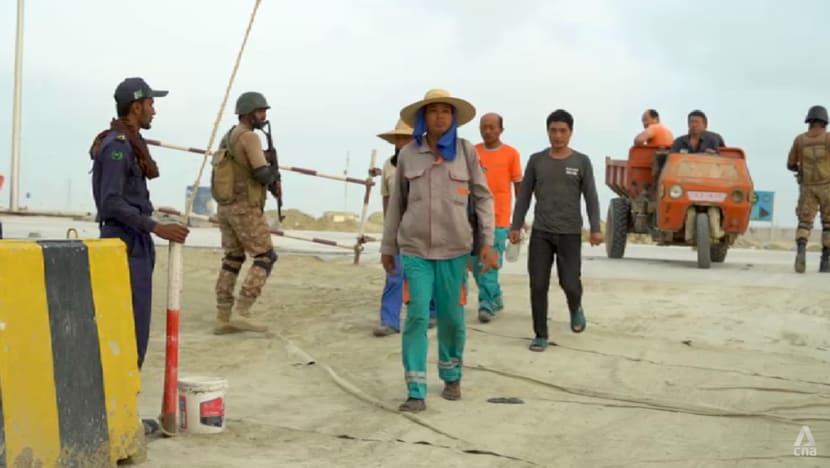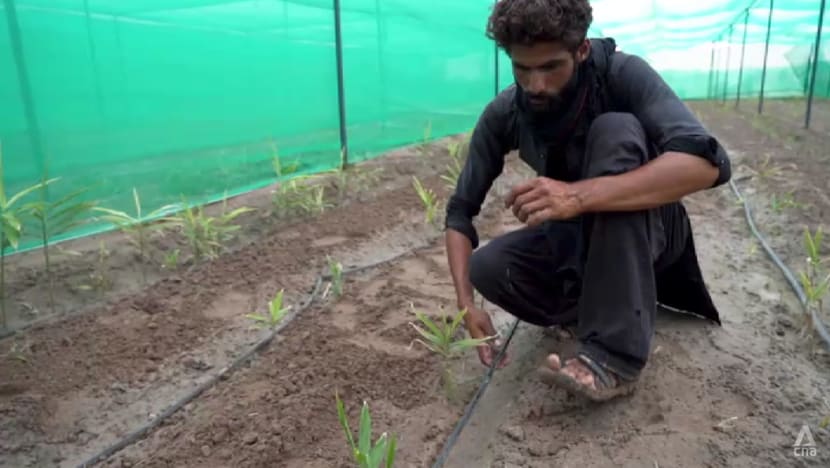Uncertainty over Chinese-led development projects in Pakistan amid political instability, economic woes
Some businesses are unsure if the second phase of the China-Pakistan Economic Corridor will deliver on its promises, given the slow progress of projects in the initial phase.

China has been pressuring Pakistan to do more to protect Chinese nationals and interests.

This audio is generated by an AI tool.
ISLAMABAD: Pakistan's ongoing struggle with political instability and terrorism have slowed the progress of development projects under the China-Pakistan Economic Corridor (CPEC), even as China pours billions of dollars into the cash-strapped country.
The three-phase masterplan linked to China's ambitious Belt and Road Initiative was launched in 2015.
But infrastructure, energy, and port development projects under the first phase of CPEC have met with delays due to numerous challenges including violence and economic troubles.
This has sparked mixed reactions within the local business community on whether the second phase – involving the setting up of special economic zones – will take off.
CHINA RUNNING OUT OF PATIENCE
“The economic, macroeconomic and financial (situation), as well as the political instability are facts of life in Pakistan,” said Dr Akmal Siddiq, technical advisor at the Ministry of National Food Security and Research.
But he believes investors “who take a longer-term view of the situation” will still come to Pakistan.
Yet, there have been signs that China is running out of patience. It has been pressuring Pakistan to do more to protect Chinese nationals and interests.
In June, Pakistani Prime Minister Shehbaz Sharif led a delegation of about 100 business leaders to Beijing, with the aim of reassuring Chinese President Xi Jinping that he was on top of security matters as well as to appeal for more investments.
Both sides committed to deepening cooperation in areas such as agriculture, information technology, and industry.
But within Islamabad’s business community, some are unsure if the second CPEC phase will deliver on its promises, given the slow progress of projects in the initial phase.
A NEW ERA OF COOPERATION
Pakistani business leaders told CNA that they need an unwavering show of faith by Beijing.
Mr Ahsan Zafar Bakhtawari, president of the Islamabad Chamber of Commerce and Industry, said: “Unless (Chinese President Xi) visits Pakistan again, progress on CPEC phase two may not be possible, and there will be a lack of confidence.”
Many businesses also feel that Chinese loans need to be more flexible to allow for development projects to catch up.
"If we take more debt from China, the repayment should be set for at least 25 years,” said Mr Bakhtawari.
“This is because the government typically commits to repayment for only five years, which hurts our economy and leads to increased deficits.”
Some entrepreneurs are more optimistic about the growth prospects in the second phase, particularly the creation of export processing zones that will allow companies and their Chinese partners to locally manufacture the machines and goods that are currently imported.
Mr Naeem Siddiqi, who brings in Chinese computer hardware for local distribution, said this would help him save thousands of dollars in costly import taxes and fees.
“We can make a big cost difference if the product is made in Pakistan,” said the CEO of Computer Super Market.
“We can save on transportation costs. We can save a lot on manufacturing costs because, as compared to China, we are quite cheap in labour.”
Mr Siddiqi believes by becoming a production base for China, Pakistan can also transform into a technology hub in the future.
“We can depend on China for this, and we see that in future they will also bring in more technology to Pakistan,” he said.

SPECIAL ECONOMIC ZONES FOR AGRICULTURE
Meanwhile, Pakistani farmers are hoping that Chinese investments will give their country’s agriculture scene a much-needed boost.
“We need to cooperate with China, and the government also needs to take action to drive significant advancements,” said Mr Irfan Akbar, who has tirelessly farmed crops with his bare hands for nearly 30 years.
“We are falling behind in farm machinery, equipment, and in various other areas. Unfortunately, we are still using the same and increasingly out-dated irrigation system.”
In the second phase of CPEC, special economic zones for agriculture will be set up, with China providing equipment, funding, and support in research and development in new varieties of cash crops.
The Pakistan Agricultural Research Council said it is establishing a Center of Excellence in Agriculture with Chinese support.
Dr Ghulam Muhammad Ali, the council’s chairman, said “This facility will focus on high-tech research, training personnel, and advancing product development in the agricultural sector.”

















